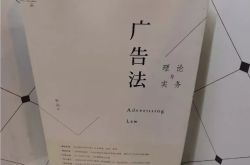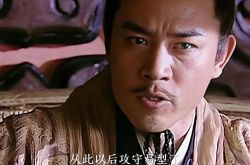vivo without 'Internet Celebrities' Tops China's Smartphone Market for Three Consecutive Years
![]() 11/06 2024
11/06 2024
![]() 628
628
Introduction: Decentralization is the only way for a company to excel.
LEISTONE | Author: LEISTONE Business Review | Producer
1
Recently, I, on behalf of LEISTONE Business Review, attended three vivo product launch events in succession.
At these events, I met several core executives from vivo. Among them were Shi Yujian, Senior Vice President and Chief Technology Officer of vivo, who delivered a public speech at the vivo Developer Conference; Zhou Wei, Vice President of vivo, Vice President of OS Products, and Dean of vivo AI Global Research Institute; Lu Jinghui, Chief Security Officer of vivo; Hu Baishan, Executive Vice President and Chief Operating Officer of vivo, Dean of vivo Central Research Institute, and Huang Tao, Vice President of vivo Products, who attended the vivo X200 series launch event; and Luo Feng, Vice President of iQOO Products, who explained products at the iQOO 13 launch event under vivo.
After meeting these executives from vivo, I was struck by the fact that almost none of them are well-known to the public or even many people in the industry. This is quite "alternative" in China's extremely noisy smartphone industry. This is because there are too many "Internet celebrity" entrepreneurs and executives in China's smartphone sector. The most famous are Lei Jun of Xiaomi and Yu Chengdong of Huawei, who have long occupied the top spots among China's popular business figures; Zhao Ming, the head of Honor, which spun off from Huawei, has also begun to frequently appear in the media in recent years, often making surprising statements, as he attempts to replicate the Internet celebrity routes of Lei Jun and Yu Chengdong; even OPPO, which shares the same BBK Electronics background as vivo, has Liu Zuohu, a well-known Internet celebrity executive in China's smartphone circle.
In addition to the absence of "Internet celebrity" executives, there is another surprising statistic: vivo has ranked first in sales in China's smartphone market for three consecutive years from 2021 to 2023. Unsurprisingly, it will maintain its sales champion position in 2024. Even in years when it was not first, vivo consistently ranked in the top three. Viewing the recent 10-year period, vivo can be considered the most stable company in China's smartphone industry.
2
On one hand, there are no "Internet celebrity" executives; on the other, vivo ranks first in sales in China for three consecutive years. vivo uses its own real-life case to bring down the fever for the popular "Internet celebrity model" in China's business community.
In recent years, with the rise of "Internet celebrity entrepreneurs" such as Yu Chengdong, Lei Jun, and Zhou Hongyi on the internet, more and more entrepreneurs in China have begun to follow their lead by posting on Weibo, filming videos, and live streaming. I strongly disagree with this approach because it is not suitable for all entrepreneurs; on the contrary, for most entrepreneurs, the disadvantages outweigh the advantages.
Any company is an organization composed of many individuals, and the collective wisdom of these individuals collectively shapes the company's products. These products, through word-of-mouth from users, gradually evolve into the company's brand. Therefore, a corporate brand is the crystallization of the collective wisdom of an organization, far surpassing any individual within it.
Although a company's founder plays a crucial role in its development, individuals are imperfect and cannot be compared to the collective wisdom of an organization. Many companies have decent products and services, but their founders do not have a good image, eloquence, or cultivation. In such cases, excessive exposure of the company's founder to the public not only fails to enhance the company's brand image but may also equate the founder with the brand in the public's mind, severely damaging the brand and destroying the fruits of the organization's collective wisdom.
3
A company's founder often determines its core culture. vivo's lack of pursuit of becoming an Internet celebrity stems primarily from the beliefs and actions of its founder, Shen Wei. Although in the consumer electronics industry, which directly faces C-end consumers, Shen Wei rarely appears in public like Lei Jun or Yu Chengdong. Even for the launch of the company's flagship products each year, subordinate employees are entrusted to present. For example, at the three important launch events of the vivo Developer Conference, vivo X200 series, and iQOO 13, not only was Shen Wei absent, but even senior vice presidents like Shi Yujian and Hu Baishan only made brief appearances. The main speakers at these events were the lower-level executives Zhou Wei, Huang Tao, and Luo Feng, who are responsible for technical products.
The reason for this approach lies not only in Shen Wei's low-key personality but also in vivo's "benfen" culture, inherited from the BBK Electronics era. "Benfen" refers to delving into the essence to explore what is right. For a company, the essence of its business success does not lie in the personal influence of entrepreneurs but in its systematic capabilities in research and development, products, supply chains, branding, channels, and services, as well as in its strong brand image and user reputation. The stronger these systematic capabilities and user reputations are, the less reliant they should be on the personal influence of entrepreneurs. Instead, a "decentralized" organization is needed, with capable subordinates in each key business area.
If a company's top leader frequently appears in public and steals the spotlight from business leaders, the overall operation of the organization will become disordered. Ultimately, subordinates' sense of responsibility and initiative will weaken, while the top leader will become increasingly overwhelmed. Lei Jun and Yu Chengdong have long been regarded as "model workers" in China's smartphone industry, which is partly related to this phenomenon.
Although Shen Wei may not appear as diligent or passionate as Lei Jun or Yu Chengdong, he has transformed vivo into a "decentralized" organization where employees can showcase their talents in various positions and enjoy the glory brought by their achievements. This leads the company into an effective positive cycle. If Shen Wei were an attention-seeking entrepreneur who presented at every important product launch, it would not only waste time and energy but also hinder the growth and sense of accomplishment of specific product leaders like Zhou Wei, Huang Tao, and Luo Feng. As a result, vivo would not have become a company with motivated employees, no business shortcomings, and leading systematic capabilities in the industry, nor would it have ranked first in sales in China's smartphone market for three consecutive years.
Another company similar to vivo in its approach is BYD, the current leader in the new energy vehicle industry. In recent years, BYD has launched numerous popular models, but its founder Wang Chuanfu remains extremely composed and never relies on his personal influence for product marketing. Instead, he cultivates in-house leaders for each brand, such as Hu Xiaoqing, General Manager of the Look up brand, Xiong Tianbo, General Manager of the Fang Chengbao brand, and Zhao Changjiang, General Manager of the Tengshi brand. They lead their teams in promoting products through a systematic marketing approach rather than spending significant energy on video, live streaming, and social media battles. Notably, both Hu Xiaoqing and Xiong Tianbo are low-key female leaders.
For a truly high-value and excellent brand, it transcends any individual. If it is too deeply tied to a specific individual, the brand cannot establish a tone that surpasses that individual. Although Hu Xiaoqing and Xiong Tianbo are not well-known to many consumers, it does not hinder the rise of the Look up and Fang Chengbao brands in China's automotive industry.
Recently, a "dark horse" has emerged in China's new energy vehicle industry: NIO Auto, which has sold over 30,000 vehicles in each of the last three months. NIO Auto is the third new energy vehicle brand, after Lixiang One and AITO, to surpass 30,000 monthly sales, surpassing other well-known brands such as NIO, XPeng, and ZEEKR. Zhu Jiangming, the founder of NIO Auto, who comes from a traditional industry background, also rarely appears in public. Instead, he leads NIO Auto in keenly grasping opportunities in the market and striving to produce quality products. The significant increase in sales in recent months is attributed to the great success of the C10 and C16 models launched this year.
An entrepreneur's rise to fame should be a natural outcome of the company they lead being recognized by consumers, rather than misleading consumers' rational decisions through hyped-up personal fame. For example, top Chinese entrepreneurs like Ren Zhengfei, Wang Chuanfu, Ma Huateng, Duan Yongping, Wang Xing, and Huang Zheng are extremely low-key. However, due to their companies' outstanding achievements, they have gained even greater reputation and word-of-mouth compared to Lei Jun, Yu Chengdong, and Zhou Hongyi. Therefore, I suggest that Chinese entrepreneurs should not be misled by the actions of "Internet celebrity" entrepreneurs like Lei Jun, Yu Chengdong, and Zhou Hongyi. Instead, they should return to the essence of business and learn from companies like vivo to think about "what is right" and focus on building a "decentralized" organization without Internet celebrities.
Numerous historical cases have fully demonstrated that any organization with overly concentrated power will eventually perish. This is because the internal and external environments of organizations are constantly changing, and for a company to thrive, it must possess the ability to continuously adapt to these changes. To perceive and respond to these changes, it is impossible to rely solely on a centralized top leader; instead, it must rely on frontline employees within the organization who are best able to capture these changes and respond promptly. Therefore, only "decentralization" can achieve this kind of continuous innovation originating from the grassroots level. It is the organizational form that most conforms to natural laws and the only path for a company to excel. Understanding this logic will help many entrepreneurs gradually abandon their obsession with "Internet celebrities" and return to the right path of building and empowering their teams.








